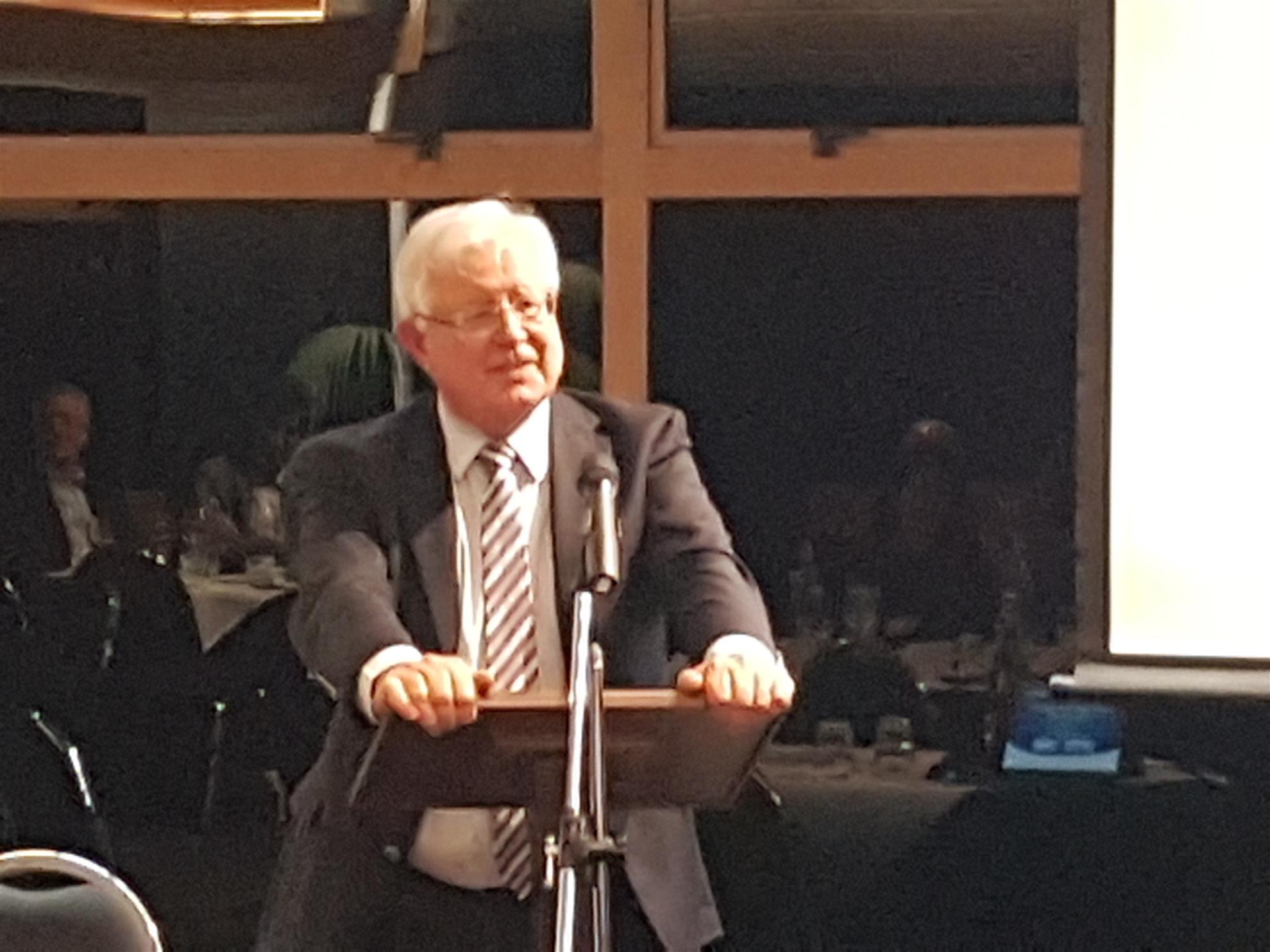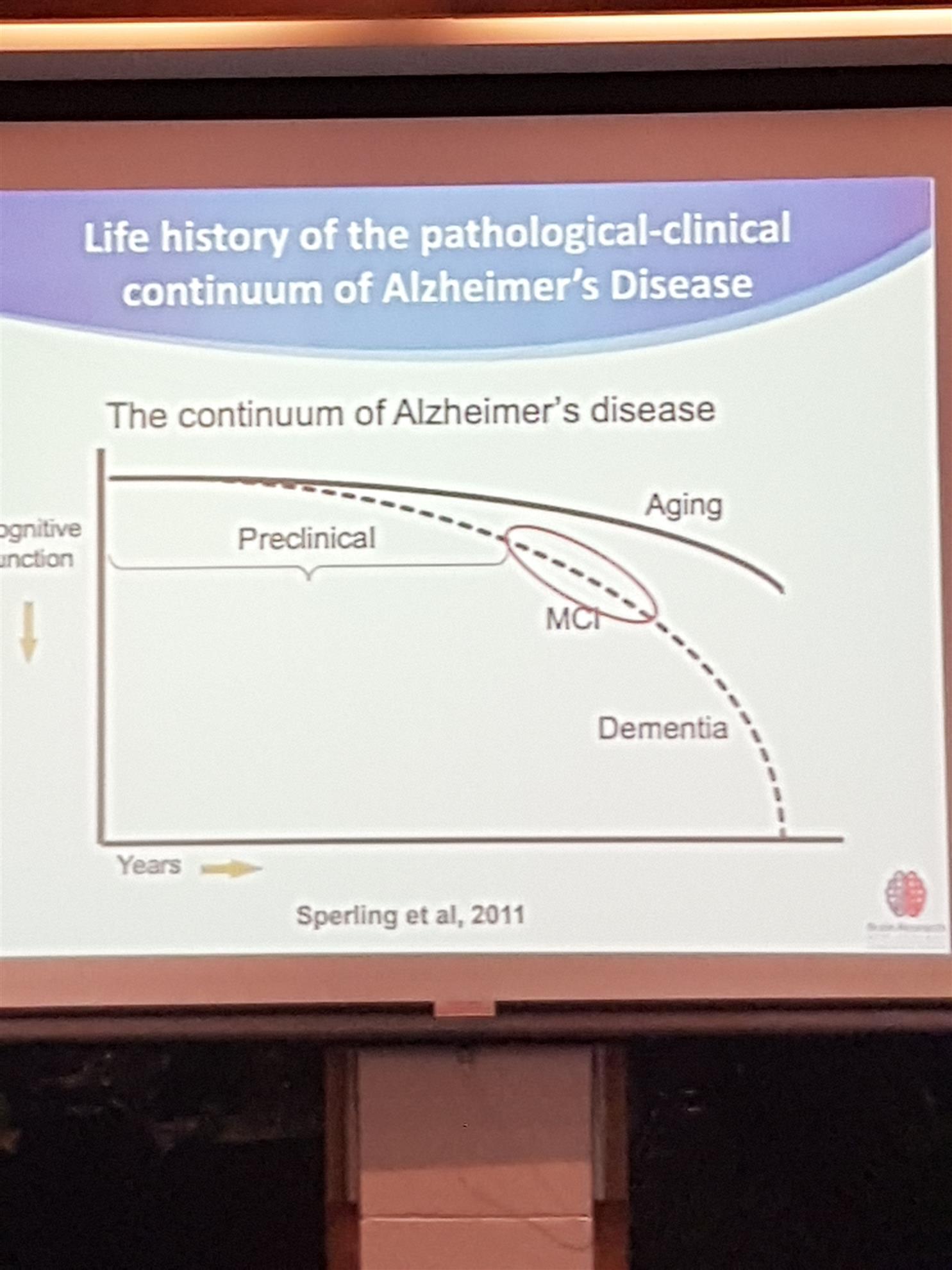 Our keynote speaker was distinguished Prof Sir Richard Faull, one of New Zealand’s finest physicians who has spent most if not all of his career looking at the human brain.
Our keynote speaker was distinguished Prof Sir Richard Faull, one of New Zealand’s finest physicians who has spent most if not all of his career looking at the human brain. Presently there are about 62,000 people affected by Alzheimer’s and that number is expected to increase as years pass.
Presently there are about 62,000 people affected by Alzheimer’s and that number is expected to increase as years pass.
The early signs of Alzheimer’s are slowly developing problems with memory remembering what things are forgetting appointments and forgetting what things like car-keys are and what they do.
Sir Richard told us were not going to be able to cure the disease within the foreseeable future. What we are trying to do is limit its impact on humans.
Sir Richard told us that research has shown if you can slow the progress of Alzheimer’s by two years then the effects drop by 20% and over five years by 50%. I.e. if you push out the impact of Alzheimer’s then you get to enjoy life longer.
Sir Richard told us of a number of things can be done to slow down the progress of Alzheimer’s. None of them are magic bullets on their own but combined they seem to have a significant impact.
The first point to note is what is good for the head is good for the brain. Don't get concussed regularly. Don't abuse alcohol and other substances. simple stuff really but life (or brain) preserving
Diabetes hypertension smoking obesity lack of exercise are all considered to be causative of Alzheimer’s in later life.
Education is important as is cognitive activity that is to say reading, writing, crossword puzzles, singing, learning, visiting a library and reading, crafts knitting all these keep the brain occupied an active
Physical activity is important exercise improves brain activity. That improves cognition so walk, swim, exercise, do yoga, play golf, garden and do similar things.
Social interaction is important as having large social networks is good for cognitive activity. Being antisocial on the other hand may actually be a driver of Alzheimer’s. In other words keep lots of friends and keep those networks operating.
Diet is important. Studies suggest the Mediterranean diet reduce the risks of progression to Alzheimer’s disease. There are some conflicting evidence for antioxidants but modest wine intake may be of some benefit.
Sir Richard told us that hearing loss has an association with dementia.
The most important thing is to enjoy life in moderation stop
Sir Richard told us about a brain research project which has been set up by way of partnership between the various universities and medical schools through the country. It is bringing together all brain scientists in New Zealand to see if they can slow down the ageing process in the brain. Research centres are located in Christchurch Dunedin and Auckland. The object of the research is to see what markers there are that will predict whether or not they will show changes suggesting early Alzheimer’s and to see if different interventions can slow things down.
The aim is to slow the progression of the disease rather than prevent it although that is the long term goal.
Sir Richards address was interesting stimulating and important. It’s not all doom and gloom so keep fit keep that active social network together and keep working on those crosswords, those chess games and you may well slow down or avoid Alzheimer’s.
Thank you Sir Richard for an enjoyable and thought-provoking address
